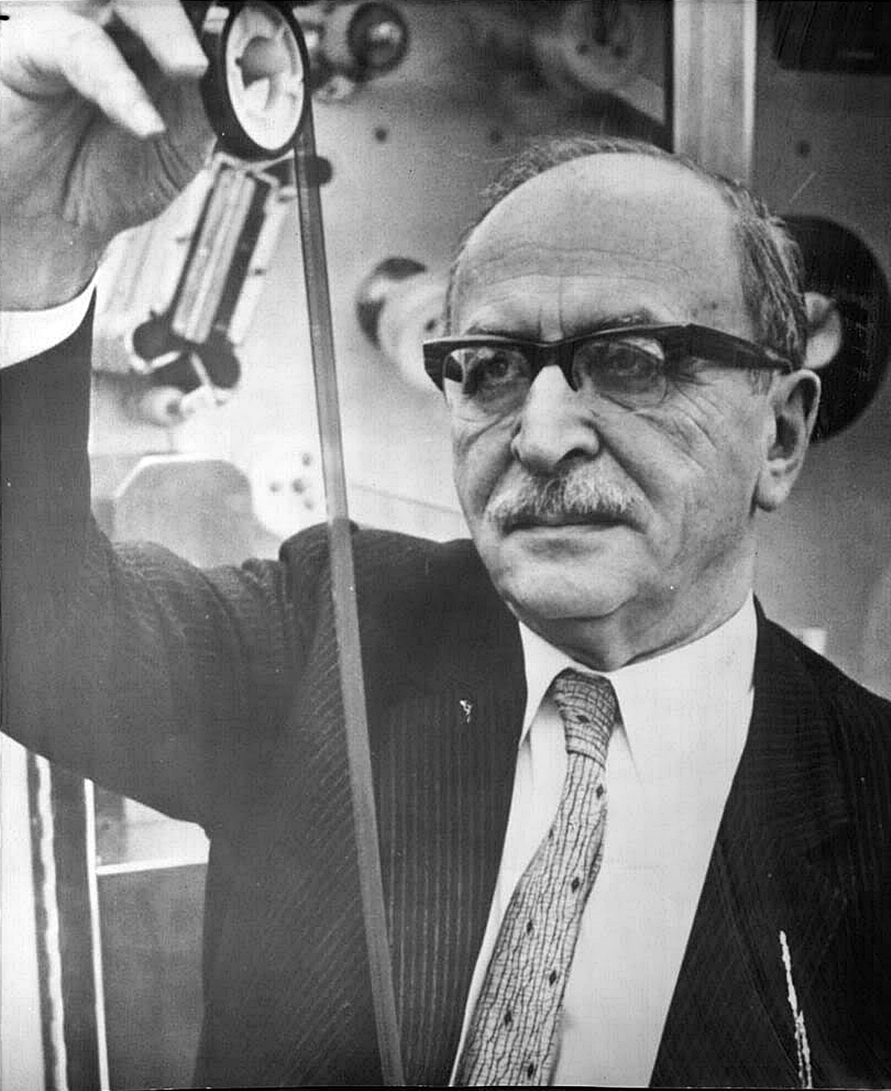"Optical transmission" in Information Theory : Papers Read at a Symposium on Information Theory (1952), as cited in Living Systems (1978) by James Grier Miller, p. 12
Contexto: Incomplete knowledge of the future, and also of the past of the transmitter from which the future might be constructed, is at the very basis of the concept of information. On the other hand, complete ignorance also precludes communication; a common language is required, that is to say an agreement between the transmitter and the receiver regarding the elements used in the communication process...
[The information of a message can] be defined as the 'minimum number of binary decisions which enable the receiver to construct the message, on the basis of the data already available to him.' These data comprise both the convention regarding the symbols and the language used, and the knowledge available at the moment when the message started.
Dennis Gabor: Frases en inglés
Fuente: Inventing the Future (1963), p. 161
Fuente: Inventing the Future (1963), p. 18
In my view both have lagged behind technology, especially in the highly advanced Western countries, and both constitute dangers.
Fuente: Inventing the Future (1963), p. 18-19
